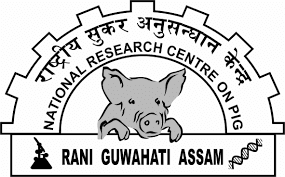|
Krishi
Vigyan Kendra (KVK) is the primary link for farmers to know about
latest agricultural technology development. It serves as Farm Science
Centre for diffusion of location specific technologies with minimum
time gap between development and transfer to the end users. The
KVK activities include on-farm testing of technology to establish
the location specificity under various farming situations; frontline
demonstrations to establish its production potential in the farmers’
fields; training of farmers to update their knowledge and skills
in improved agricultural technology; and training of extension personnel
for orientation to the frontier areas of agricultural technology
development.
|
|||||||||||||||||||||||||||||||||||||||||||||
|
Krishi Vigyan Kendra (KVK) works on the mandates of · Conducting ‘on-farm testing’ for identifying location specific sustainable land use system. · Organising training for extension personnel to update knowledge on emerging advances in agricultural research on regular basis. · Organising both short term and long term vocational training for the farmers and rural youth on agriculture and allied vocations with emphasis on ‘learning by doing’ for enhanced production and self-employment generation. · Organising ‘front line demonstration’ of various crops to generate production data and feed back information. |
|||||||||||||||||||||||||||||||||||||||||||||
|
Objectives
of Zone III
|
|||||||||||||||||||||||||||||||||||||||||||||
|
1. Planning and conducting survey in the operational area in order to prepare the resource inventory with special reference to training needs of the farming community. 2. Planning and conducting production oriented, need-based short and long term training, both on campus and off campus, for various target groups with priority on the weaker and poor section of the society. 3. Developing and organizing non-formal educational programmes by way of field days, farm visits, farmers fair, radio talk, Farm Science Clubs etc. as the follow up information support to the training courses. 4. Organizing Farm Science Clubs, both in rural schools and in villages in order to induce in younger generation a liking for and an interest for agricultural and allied sciences and scientific farming through supervised projects. 5. Developing and maintaining the campus farmsand demonstration units on scientific lines as the facilities for providing work experience to the trainees and also disseminating the latest technical know how. 6. Providing practical facilities of the Kendra to the teachers and the students of the vocational agriculture of the higher secondary schools. 7. Imparting some general education to rural illiterates and school dropouts in order to make them not only good farmers but also better citizens. 8. Providing added training facilities in the areas of home making and nutrition education for rural community. 9. Gradually enlarging the training facilities to encompass other important areas such as home crafts, cottage industries etc. consistent to the requirements of the Integrated Rural Development in collaboration with concerned organization. 10. Implementing all such schemes of the ICAR and other related organizations which intend to strengthen the training programmes of he Kendra.
KVK Goalpara
KVK Goalpara was established in September 2006 under the administrative control of the National Research Centre on Pig, Indian Council of Agricultural Research, Rani, Guwahati, Assam. It started functioning in September 2006 in a rented house at Thekasu, Dudhnoi. Amongst 20 KVKs in Assam, KVK Goalpara is the only one under direct control of the ICAR and the rest 19 are under the control of Assam Agricultural University. The Govt. of Assam allotted 102 bighas (13.6 ha) of land at Udaypur opposite to the secretariat of Rabha Hasong Autonomous Council, Dudhnoi, for establishment of permanent campus of the KVK. The KVK will have the following facilities:
1. Model Integrated Farm for demonstration of integrated farm management (IFM) and bioresource flow amongst the enterprises 2. Seed farm for production of seeds of various field crops, horticultural crops, plantation crops, medicinal and aromatic plants, piglets, chicks, ducklings, fish etc. 3. Experimental farm for testing the suitability of newly generated agricultural technologies 4. Administrative building 5. Training hall 6. Farmers’ hostel 7. Soil and water testing laboratory 8. Community resource centre (CRC) for rendering support services through information communication technology (ICT) 9. Staff quarters |
|||||||||||||||||||||||||||||||||||||||||||||
|
STAFF OF KRISHI VIGYAN KENDRA
|
|||||||||||||||||||||||||||||||||||||||||||||

भारतीय कृषि अनुसंधान परिषद
Indian Council of Agricultural Research
भा.कृ.अनु.प. – राष्ट्रीय शूकर अनुसंधान केन्द्र
ICAR - National Research Centre on Pig

